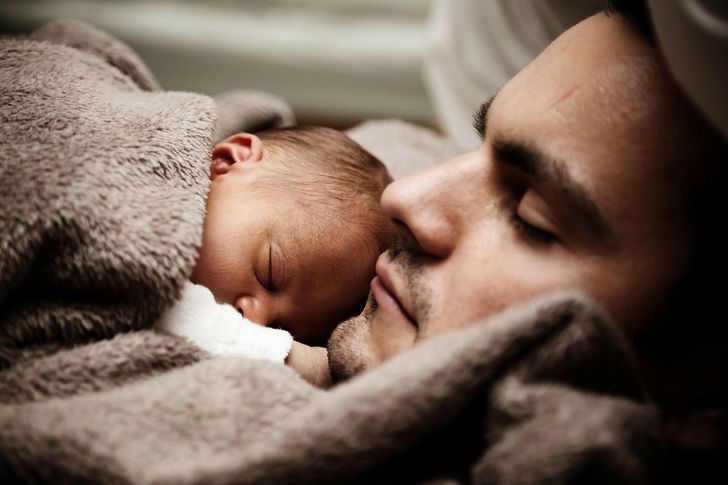Brushing the baby's eyebrows or using the hum of the hair dryer!!!:)) It even sounds very cute.
12 Baby Sleep Tips That Can Save You Time and Nerves
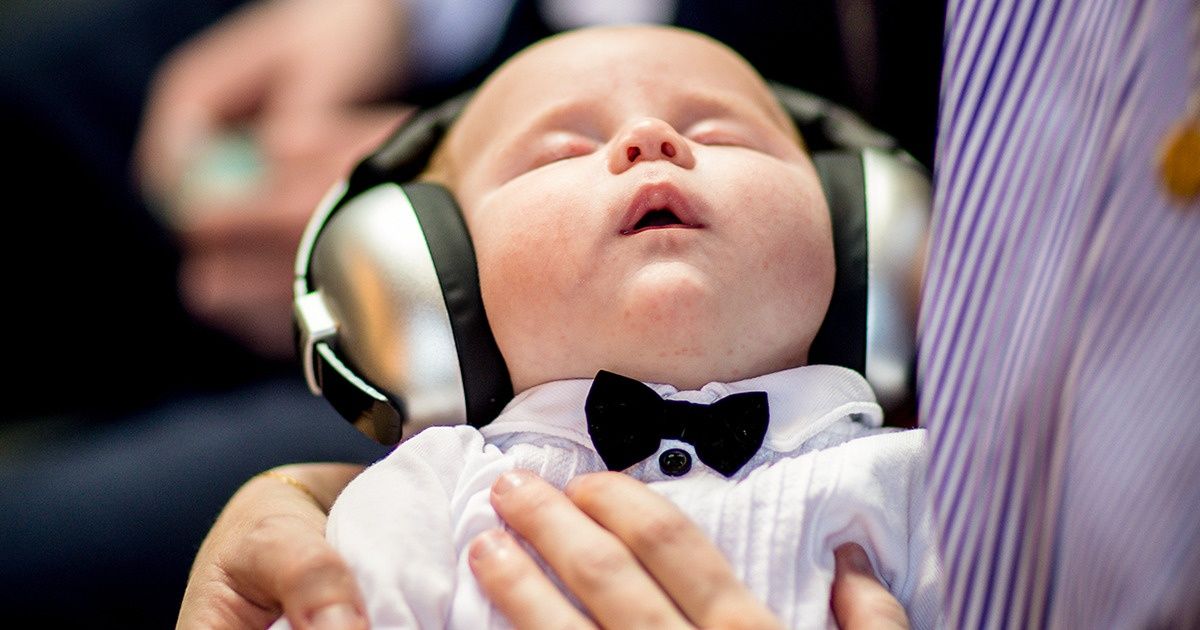
Becoming a parent is a blessing. However, it can be a challenging one, as it’s a brand new adventure with no provided manual. One of the biggest ordeals that most parents have to steer through is getting their baby to sleep. Is your baby’s tiresome sleeping routine keeping you up all night?

1. There’s nothing like a cozy, well-done swaddle.
Babies undergo a startle reflex that happens from birth to 6 months of age. This reflex is caused by a sensation of free-falling and causes sudden jerks and lifting of the arms, which could eventually wake them up. Keeping your baby in a tight swaddle helps them to avoid the jerks and allows them to sleep smoothly.
Experienced mom, Lauren Tamm, calls this her “snug as a bug in a rug” rule and swears by it!
2. Use dimmers to help your baby distinguish between day and night.

Teaching your baby that night is for sleep can be a huge task. However, if your baby understands this one earthly rule, your life is pretty much figured out! Plan your baby’s nighttime schedule and live by it.
Using dimmers in the lamps and lights in your house will signal to your baby that it’s time to sleep and regulates your baby’s circadian rhythm.
3. Add a warm bath to your baby’s nightly routine.
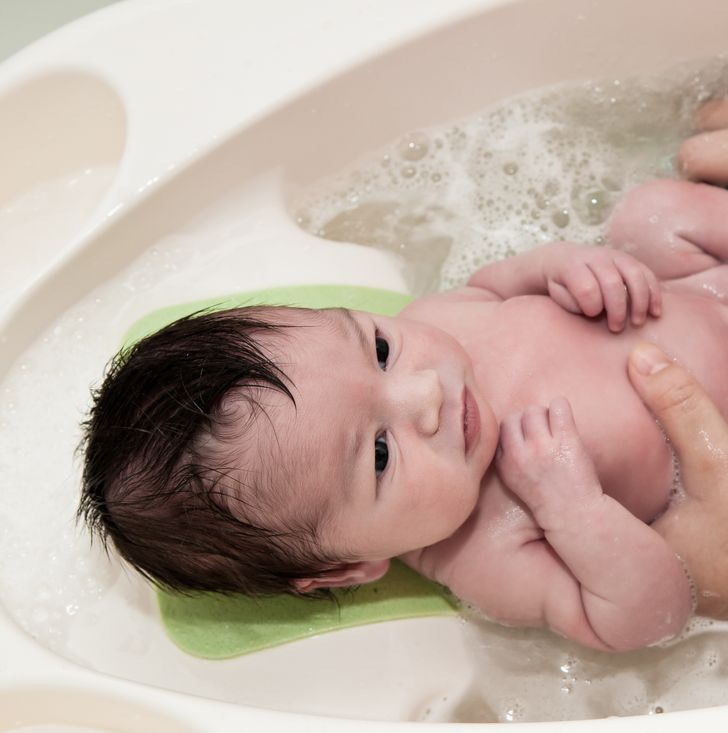
Running yourself a warm bath before snuggling into bed works wonders for everyone. Why not use it for your baby too? Adding a warm bath and a fresh diaper change to your baby’s nightly routine could signal to the little one that it’s time to call it a day and work wonders for smooth sleep through the night.
4. Regulate the temperature of the baby’s room.
According to Dr. Alan Green’s book, From First Kicks to First Steps, the optimum temperature for an infant’s sleep ranges from 65 to 70 degrees Fahrenheit. Keeping your baby’s room temperature a little low allows your baby to fall asleep quicker. Putting on the fan at a low speed or keeping the windows a little open could help a lot.
5. Make use of white noise in the baby’s room.
White noise is extremely helpful for the baby to sleep since it sounds very similar to the rush of blood in the veins as heard by your baby in your womb. Finding the right kind of noise that soothes your baby to sleep might do the trick.
Putting a fan at medium speed or using a white noise machine can work wonders in helping your baby stop fussing and calm down. If your baby sleeps to the sound of the vacuum cleaner, go ahead and put a recording of it on loop!
6. Plan the diaper changes tactfully through the night.
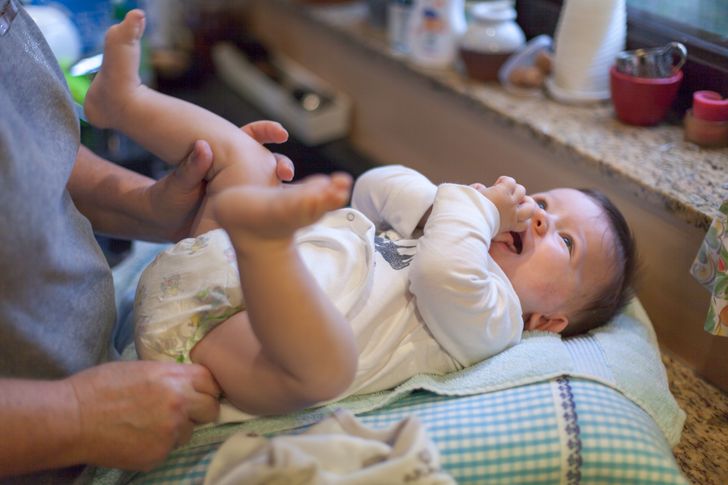
Planning tactfully with midnight naps and a diaper change can help your baby have a good night’s sleep. Before the midnight feed, change your baby’s diaper and put them back to sleep with a cozy swaddle. If you change their diaper after their meal, they might be fully awake and then might take longer to fall asleep back again.
7. Cut your caffeine intake if you’re breastfeeding.
Caffeine through soda and coffee is usually undetected in the baby’s urine, however sticking to one to 3 servings of caffeine spread throughout the day could be just enough. Taking higher doses of caffeine (5 6-ounce cups or more) might cause your baby to get fussy and irritable.
Pay close attention to your baby’s mood changes if you have had a little extra chocolate, soda, or tea during the day and it might help to cut some java from your diet.
8. Use a bassinet or a co-sleeper.

For the first 6 months, it’s always preferable for your baby to be able to sleep as close to you as possible. Ditching the baby’s crib and keeping a bassinet or using a cosleeper is a great idea to make sure your baby has uninterrupted naps. Bassinets feel cozier and more secure as the parents can be right next to them. Sleeping right next to your baby or taking a quick nap with them can also have the same effect.
9. Limit your baby’s screen time before bedtime.
Your baby might be an Instagram star in the making, however, research shows that babies that play with touch screens like phones or other devices took a longer time to doze off. Keeping the baby away from screens for an hour or 2 before their nap time could help them get ready to call it a day.
10. Avoid making eye contact while cradling your baby to sleep.
The first things that babies learn is to make eye contact to communicate and recognize the people around them. Making eye contact with your baby and talking to it releases the love hormone, oxytocin, which increases the baby’s heartbeat. Hence looking into your little one’s eyes while you’re cradling them to sleep can actually have the opposite effect.
Not making eye contact will send the message that it’s nap time and will help them to settle down faster.
11. It is okay to wake your baby up for their feeding.

A lot of parents swear by one rule: Never wake up a sleeping baby. However, if your baby is sleeping past the next feed time or hasn’t eaten in the last 3 hours, it’s perfectly okay to wake the baby up! This will not only get your baby into the right sleep routine, but also make sure there are no fussy evenings.
12. Find what works best to put your baby to sleep and go with it.
Babies have their own likes and dislikes, and while there is no set manual for what works best, your baby might be giving you signals as to what is a win-win with them. Be it brushing their eyebrows or the hum of a hair dryer, every parent has one go-to option that does the trick. Catch the signal and go with it!
Comments
Related Reads
I Thought I Knew My Fiancé, Then I Learned About His Secret Deal With My Dad

My Husband Blamed Me for My Period on Our Honeymoon, So I Turned the Tables

18 Seniors Whose Sharp Wit Proves Humor Only Gets Better With Age

11 Times a Stranger’s Kindness Rewrote the Rest of Someone’s Life
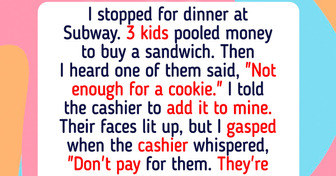
I Quit After My Boss Punished Me for Attending My Mom’s Surgery

I Refused to Let My Stepmother Dictate My Wedding—I Have Been Too Kind

I Chose to Be Childfree, but Suddenly Became a Mom—And Now I’m Trapped
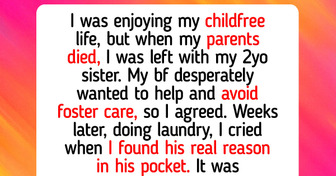
12 Stories That Prove a Quiet Kindness Can Make the Loudest Difference

I Refuse to Earn Less Just Because They Found a Cheaper Version of Me

18 Stories About Exes Who Proved Harder to Forget Than to Leave

I Refused to Expose My Salary to My Parents, Now My Life Is Falling Apart

10+ Stepparents Who Became Safe Harbors for Their Stepchildren



